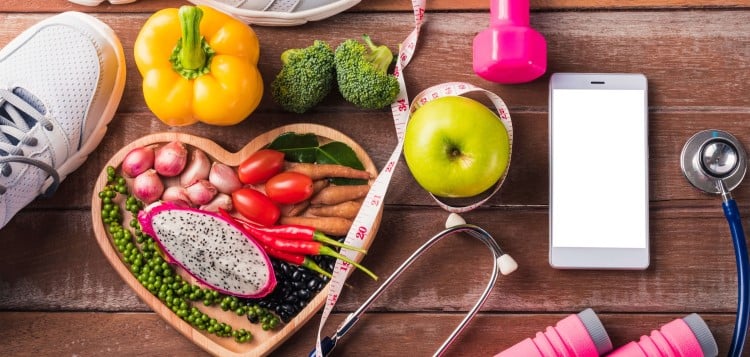Monday, November 23, 2020
|

This month’s blog post is written by Paula Gardiner, MD, MPH, Associate Professor and Associate Research Director in the Department of Family Medicine and Community Health at UMass Chan Medical School. She is the Group Medical Visit Program Director at CIPC. Her research concentration is patient-oriented research regarding chronic pain and evidenced-based integrative medicine access in low-income patients. Her current research is focused on the role of medical group visits in supporting health behavior change and reducing pain and stress. She is currently finishing an online MGV training course that CIPC will offer later this coming winter.
Last year, prior to the pandemic, in Worcester, Massachusetts, a group of adults with high blood pressure were enjoying cooking and serving a delicious meal. They were laughing and talking while they spooned vegetables and beans onto their plates. Down the hall, someone was showing another individual how to take their own blood pressure. And in a separate room, a doctor with a stethoscope around her neck was discussing weight and blood pressure readings with a patient.
How do these vignettes fit together? They were all part of a randomized control trial and most of the people were patients trying to control their severe hypertension. Many of them were from neighborhoods that are effectively “healthy food deserts.” This is a portrait of a focused medical group visit and there is a family physician present, as well as research assistants and a physician-cook. The gathering included medical checkups that a physician could have billed. Most of the patients had already learned a good deal about their conditions from an online platform called OWL.
Some years ago, I collaborated with colleagues from the Boston Medical Center to build an online mindfulness-based education platform that would introduce patients to the principles of mindfulness and mind-body practices, nutrition, stress reduction, and movement. We called the platform Our Whole Lives: a Holistic eHealth Tool (OWL). In 2017 we published research, that the randomized control trial showed that OWL is an effective self-management tool that reduced emergency room use and even opioid use. We also introduced the idea that OWL might be effective for other chronic disease management.
During the past year, I have been working on a pre-post study to test the feasibility of OWL-H.v.3, “Our Whole Lives for Hypertension and Cardiac Risk Factors”, with accompanying in-person medical group visits and hands-on cooking classes (ClinicalTrials.gov ID NCT03974334). Nearly 1 out of 2 adults in the United States has hypertension (108 million). Clinicians understand that many adults with hypertension can improve their hypertension with lifestyle modifications only (21 million). But we also know that most adults with hypertension do not have their hypertension under control (82 million).
In this new era of remote health care and the increase in telemedicine needs due to the Covid-19 pandemic, we need supportive and feasible strategies for improved hypertensive control, especially among people with low incomes. Few studies have tested the effectiveness of eHealth self-management interventions within lower socioeconomic populations.
Using principles of adult education, OWL-H provides content and mind-body experiential activities to increase self-management of HTN through regular blood pressure monitoring and health education to reduce cardiac risk factors such as salt consumption, stress, unhealthy eating, and sedentary behavior. This study was conducted at UMass Memorial Healthcare Center (UMMHC) and funded by the Center for Advancing Point of Care Technologies, which is supported by the NIH.
Twenty-four patients from the UMMHC participated in the eight-week feasibility trial that included live cooking classes, group medical visits, and the online self-monitoring (OWL-H) curriculum. Each participant could access OWL-H with their own smartphone, tablet, or desktop; blood pressure cuffs were loaned to them and they learned to take their own blood pressure. The group medical visits included an individual medical check-in with providers, assistance with OWL-H, and a group educational session.
Cooking classes were part of three of the group medical visits. Participants had the opportunity to learn basic cooking and safety skills. With the support of a physician-cook, they prepared their own meal—a healthy, and delicious dinner. The meals focused on DASH (Dietary Approaches to Stop Hypertension) and Mediterranean-diet cuisine.
At the 10th annual IM4US (Integrative Medicine for the Underserved) my team virtually presented “mHealth Platform for Self-Management of Hypertension: A Feasibility Trial” and a poster, (Links will download the documents) the results of this third iteration of OWL, which was focused on patients with hypertension (HTN).
Real progress in knowledge, confidence, and adherence to a healthy diet were evident, despite a small sample size. Eighty-four percent of participants reported that they were “Very Satisfied” with using OWL-H to help manage their hypertension. OWL-H and medical group visits that include cooking classes can be effective tools to educate and engage lower socioeconomic patients with hypertension. OWL-H and accompanying cooking classes are a potential tool to remotely educate and engage lower socioeconomic patients with hypertension.
The next step is to gain funding to conduct an RCT with a larger sample to further explore OWL-H’s efficacy in remotely assisting patients to monitor and learn about their hypertension symptoms, thereby empowering them to make positive, heart-protective choices in their everyday lives.